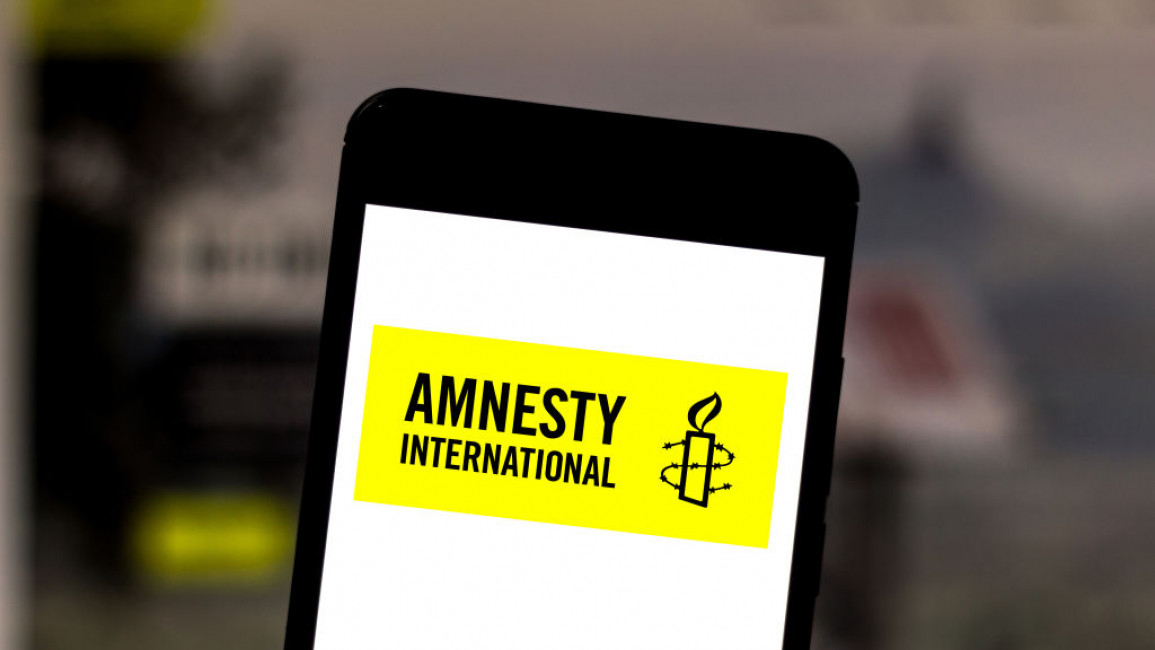Amnesty International slams Egypt Muslim Brotherhood death sentences as 'shameful'
Amnesty International has slammed the decision by an Egyptian court on Monday to uphold death sentences for 12 Muslim Brotherhood members.
The court's ruling concluded a trial linked to a 2013 mass killing by security forces at an Islamist sit-in, a judicial official said.
The NGO Amnesty described the verdicts as "shameful".
Philip Luther, Amnesty International’s research and advocacy director for the Middle East and North Africa, said: "These ruthless death sentences, which were handed down in 2018 after a grossly unfair mass trial, are a stain on the reputation of Egypt's highest appeals court and cast a dark shadow over the country's entire justice system."
Luther called on authorities to halt "their use of the death penalty" and "to immediately establish an official moratorium on executions".
He said that Monday’s verdict came after a significant spike in executions in Egypt in 2020, making it the world’s third most frequent executioner with 107 executions, adding that at least 51 men and women have been executed this year so far.
The court's ruling, which condemns two senior Brotherhood leaders, effectively ends a case which started with over 600 defendants in the aftermath of the military's 2013 overthrow of Islamist president Mohamed Morsi.
Following Morsi's ouster that July amid mass protests against his rule, his Muslim Brotherhood supporters staged a massive sit-in at Rabaa Al-Adawiya Square in eastern Cairo to demand his return.
The following month, security forces raided the square and killed some 800 people in a single day.
Authorities said at the time that protesters were armed and the forced dispersal was a vital counter-terrorism measure.
Human Rights Watch has labelled the violent dispersal of the Rabaa sit-in a "massacre" and one of "the world's largest killings of demonstrators in a single day in recent history".
No Egyptian official has been tried over the killings.
The incident marked the start of a long crackdown against both Islamists and the secular opposition in Egypt.
Those condemned to death on Monday were convicted of "arming criminal gangs which attacked residents and resisted policemen as well as possessing firearms... ammunition... and bomb-making material," the court of cassation said in its ruling.
Other charges include "killing policemen... resisting authorities... and occupation and destruction of public property", it added.
Those condemned include senior Brotherhood figures Mohamed al-Beltagy and Safwat Hegazy, the judicial source said, adding that the rulings are final and cannot be appealed.
 |
The court also reduced sentences for 31 other Brotherhood members, the official told AFP.
In 2018, an Egyptian court sentenced 75 defendants in the trial to death and the rest to varying jail sentences, including 10 years for Morsi's son Osama.
Civilians condemned to death in Egypt are executed by hanging.
'Continued political revenge'
The Muslim Brotherhood, founded in Egypt in 1928, calls for Islam to be at the heart of public life.
It established itself as the main opposition movement in Egypt despite decades of repression, and has inspired spinoff movements and political parties across the Muslim world.
But it remains banned in several countries including Egypt for its alleged links to terrorism.
Morsi was elected following Egypt's 2011 mass protests and ouster of veteran autocrat Hosni Mubarak, but was toppled by the army led by now-President Abdel Fattah Al-Sisi.
Sisi's government outlawed the Brotherhood in late 2013 and has overseen a wide-ranging crackdown, jailing thousands of its supporters.
Morsi, who had been sentenced to death for his role in jailbreaks during the uprising against Mubarak, died in June 2019 after fainting in court.
Khalil Al-Anani, a political science professor at the Doha Institute who wrote a book on the Brotherhood, tweeted describing Monday's verdict as part of the government's "continued political revenge... against its political opponents".
In April, Egypt executed at least nine people over the 2013 storming of a police station in which 13 policemen were killed.


![President Pezeshkian has denounced Israel's attacks on Lebanon [Getty]](/sites/default/files/styles/image_684x385/public/2173482924.jpeg?h=a5f2f23a&itok=q3evVtko)



 Follow the Middle East's top stories in English at The New Arab on Google News
Follow the Middle East's top stories in English at The New Arab on Google News


